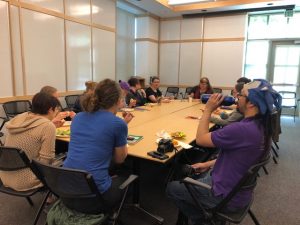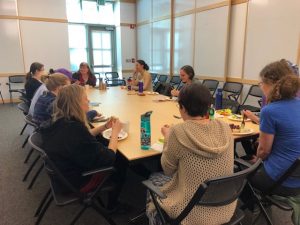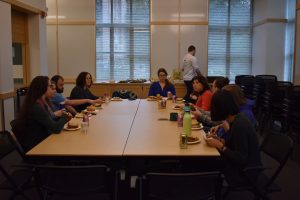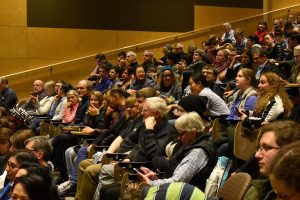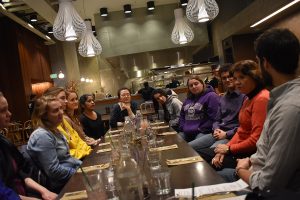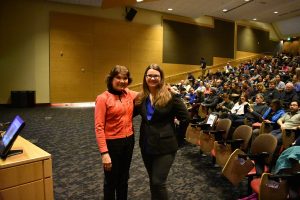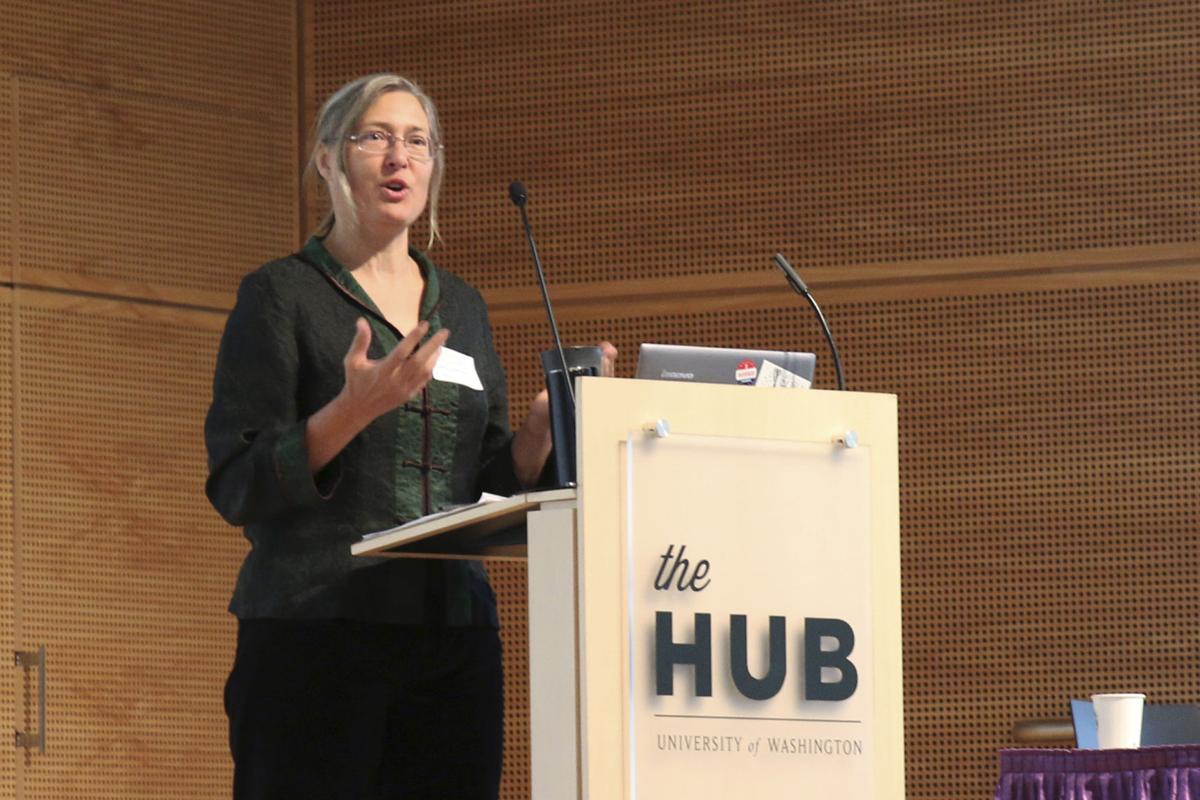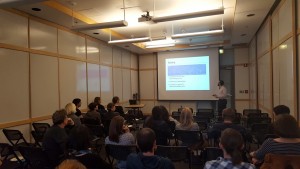The 4th annual WCS lecture took place on Wednesday, May 2nd. Our speaker was Dr. Jennifer Gerbi, a program director at ARPA-E.
Dr. Jennifer Gerbi has been practicing physics and materials science for over 20 years, and has a keen interest in the intersection of high quality science and new business development. Currently serving as a Program Director at the Advanced Research Projects Agency-Energy (ARPA-E), she manages the DELTA and SHIELD programs, developed the new SENSOR program, and manages additional projects for solar and power electronics. Prior to joining ARPA-E, Gerbi worked at Dow Corning in multiple capacities including portfolio building and new business development. She led teams in areas such as solar, batteries, and silicones for electronics. Prior to Dow Corning, Gerbi served as a Senior Materials Scientist at The Dow Chemical Company, focused on rooftop solar shingles. Gerbi served a postdoctoral fellowship at Argonne National Laboratory (vapor phase diamond thin film growth) and as a Postdoctoral Research Associate at the University of Illinois (novel thin film diffusion barriers). Dr. Gerbi holds a Ph.D. in Materials Science (semiconductor focus) from the University of Illinois at Urbana-Champaign. She also received an M.S. in Physics from the University of Virginia and a B.A. in Physics from Bard College.
WCS members had the chance to sit down for lunch with Dr. Gerbi and discuss her career path.
